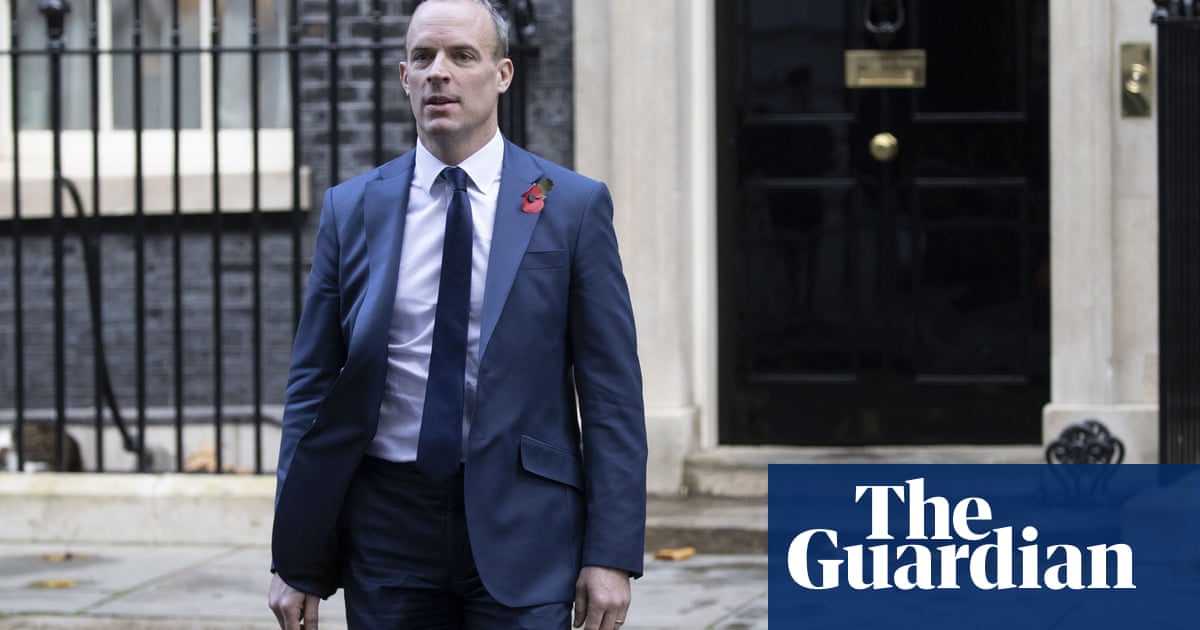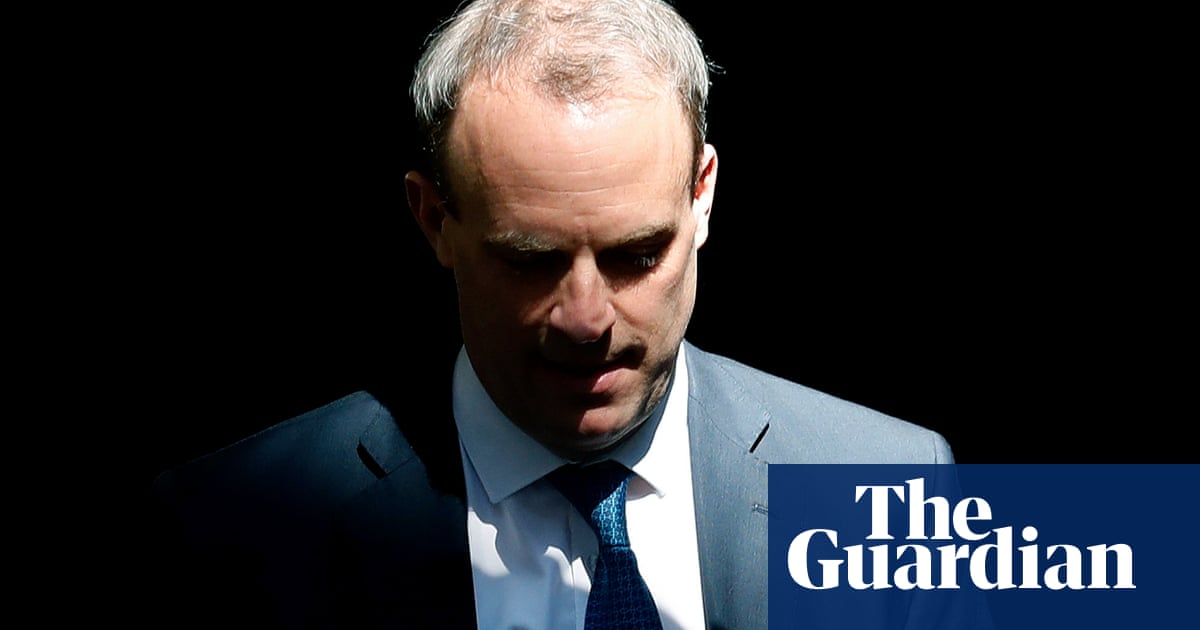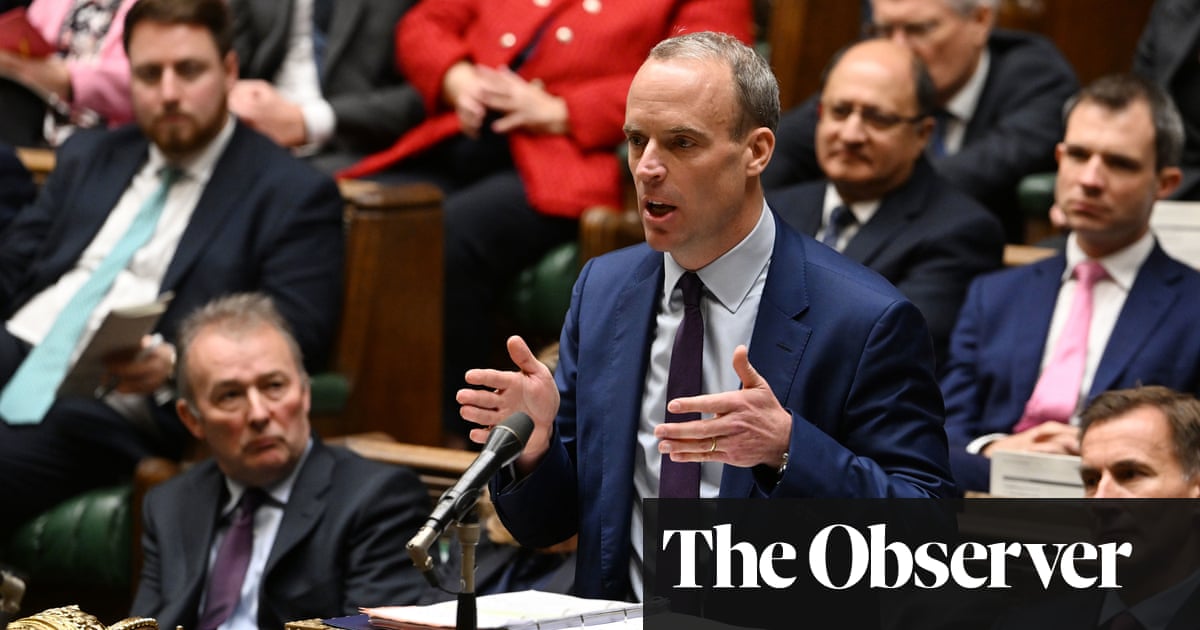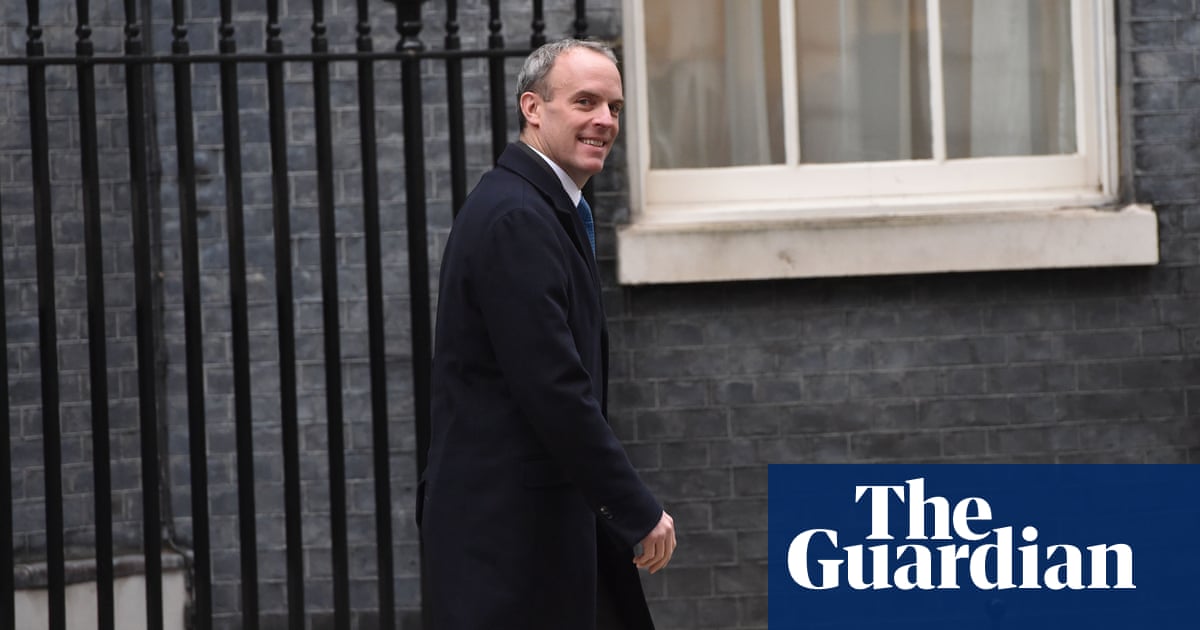
After many turbulent months at the top of government under Boris Johnson and Liz Truss, Rishi Sunak arrived in No 10 knowing he had to put the Conservatives’ days of self-immolation behind them.
On his first day in the job last October, he promised the British people that his government would display “integrity, professionalism and accountability” at every level.
The pledge has hung like a millstone round his neck ever since, with the bullying allegations against Dominic Raab, one of his closest political allies, likely to trouble him the most. Here we set out how the Guardian broke the story:
Friday 11 November 2022
Ministry of Justice sources told the Guardian that senior civil servants had been offered “respite or a route out” of the department when Raab was reappointed by Sunak the previous month, amid concerns that some were still traumatised by his behaviour during a previous stint there.
We also reported that Antonia Romeo, the permanent secretary, had spoken to Raab when he returned to the department to warn him that he must treat staff professionally and with respect.
The Guardian also spoke to a number of sources in the MoJ who claimed Raab had been “demeaning rather than demanding”, was “very rude and aggressive” and that he “wasn’t just unprofessional, he was a bully” to civil servants.
Raab came out fighting, with one source close to the minister saying he “makes no apologies” for having high standards. “He works hard, and expects a lot from his team as well as himself.”
Saturday 12 November
The following day, however, came further allegations, with the Observer reporting that concerns over Raab’s behaviour towards officials were raised inside Whitehall during his time as Brexit secretary in 2018, four years previously.
A senior source said a document outlining a “serious expression of concern” was dispatched to the Cabinet Office by a top official that alleged “unprofessional, even bullying, conduct of the minister towards his private office”. But no action was taken.
Monday 14 November
The following days brought further claims, with the Guardian revealing Raab was warned about his behaviour towards officials during his time as foreign secretary by the department’s top civil servant, who then informally reported his concerns to the Cabinet Office.
Simon McDonald, the then permanent secretary at the Foreign Office, spoke to Raab on several occasions during his tenure about how he treated staff in his private office and during meetings.
Within hours, McDonald had confirmed our reports. In an interview with LBC, he was asked whether the characterisation of Raab as somebody who could bully, and around whom bullying could happen, was a plausible one. He replied: “Yes.”
Sunak, who had already been criticised over his judgment after promoting other controversial ministers, faced repeated questions about the allegations by journalists in Bali at the G20 summit.
He responded by saying he did not recognise the characterisation of Raab and was not aware of any formal complaints, encouraging civil servants to make them official if they had concerns about his deputy they wanted to address.
Opposition parties began calling for a formal investigation, saying the reports should not be brushed under the carpet.
Wednesday 16 November
Downing Street announced Sunak would appoint an independent investigator to examine the bullying claims, after Raab requested an inquiry into two formal complaints made against him.
Raab, who said he would stay in post while the process took place, said he had always behaved properly towards staff, despite a growing list of accusations from officials.
The deputy prime minister indicated he would stand down if Sunak wanted him to, saying he would “respect whatever outcome” he decided, but vowed to “thoroughly rebut and refute” the two official complaints.
Wednesday 23 November
Sunak appointed the top employment barrister Adam Tolley KC, tasking him with investigating the complaints “in confidence” and to report back to the prime minister, who would then decide Raab’s fate.
Wednesday 14 December
Raab was facing a number of formal complaints, rather than only two, from MoJ civil servants, it was revealed.
The new complaints were understood to be from senior civil servants, with direct experience of alleged bullying and aggressive behaviour by the justice secretary. “They feel they need to stand shoulder to shoulder with more junior staff,” one source said.
Wednesday 25 January 2023
Raab was facing a much broader bullying investigation than originally anticipated with at least 24 civil servants involved in formal complaints against him, the Guardian revealed.
Sources said all but two of the formal complaints involved multiple accusers. A number of his private office staff from his first stretch at the MoJ were among those believed to have made submissions.
Officials close to the inquiry are said to have been shocked by some of the claims that emerged, including individuals being physically sick before meetings, regularly in tears and, in at least one case, left feeling suicidal as a result of the alleged behaviour.
Tuesday 31 January
All three Whitehall mandarins who worked with Raab while he was holding cabinet positions had been interviewed by the official inquiry, the Guardian reported.
Sources confirmed reports McDonald had given evidence and revealed that Romeo at the MoJ and Philip Rycroft, who ran the Brexit department while Raab was in charge, had both been witnesses.
Their testimony was believed to have focused on what warnings they gave to Raab at the time about his alleged behaviour. All three are understood to have spoken to the cabinet minister about how he treated civil servants.
Weeks later, the Telegraph reported that Boris Johnson had privately warned Raab about his conduct and given evidence to the bullying investigation.
Wednesday 1 February
The spotlight turned on to Sunak after No 10 repeatedly refused to say whether he knew of complaints about Raab’s behaviour before appointing him to cabinet.
“The prime minister was not aware of any formal complaints at the time of appointing Dominic Raab,” his spokesperson said, repeatedly refusing to say whether he had been aware of “informal” ones.
However, the Times reported that civil servants had flagged to Sunak that there had been “issues” with Raab in his previous departments before he decided to bring him back into government.
Downing Street said Sunak had not been “directly told” and that officials had not advised against the appointment.
Friday 10 February
MoJ sources said there was a sense of calm before the storm in the department’s Whitehall headquarters. Officials said they had “just been getting on with it” and “still driving ahead” with Raab’s policy priorities.
However, patience with the pace of the inquiry was starting to wear thin, with Tolley conducting lengthy interviews with complainants and witnesses.
Sunak had suggested that if Tolley concluded Raab had fallen short of the standards expected of somebody in his position, he would be sacked.
“When I’m presented with conclusive independent findings that someone in my government has not acted with the integrity or standards that I would expect of them, I won’t hesitate to take swift and decisive action,” he said. Government insiders said the inquiry still had several more weeks to run.












